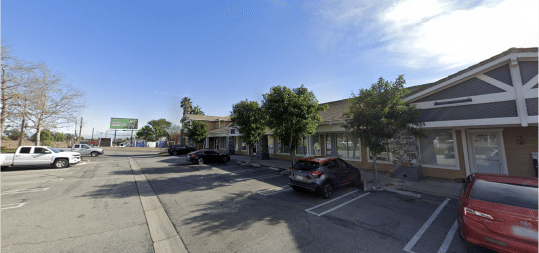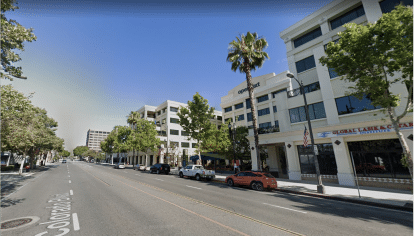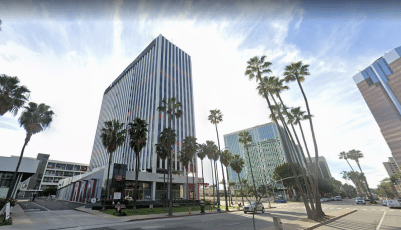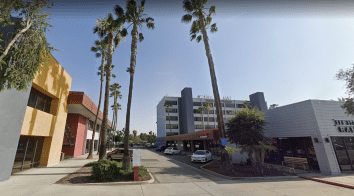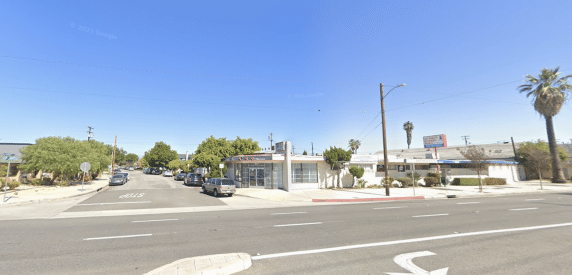
If you’ve been arrested for committing a criminal offense, chances are you’ll have to post bail to be released. You could face arrest when you cannot afford the set bail amount. However, this shouldn’t bar you from regaining your freedom. At Cali Bail Bonds, our bail bond agents are licensed by the state to bail out persons arrested in Commerce. Read through this article to know more about making bail per California law.
If you’ve been arrested in Commerce for suspicion of committing an offense, there are two ways you can be set free from jail while your case is still ongoing. You can either be released on your own recognizance (commonly known as O.R release) or through bail. If released O.R, you’ll only be required to sign a written promise to make all court appearances as needed. On the other hand, bail is an agreement between you (the arrestee) and the judge. As the accused, you agree that you’ll deposit a given amount or cash equivalent payment (in the form of a pledge of personal property) with the jail facility/court in exchange for the promise that you’ll show up in court after your release. The court will hold onto this money until all trials and proceedings involving you are complete. If you attend court as required, the court will give you your money back.
For instance, if the judge sets your bail at twenty thousand dollars, it means you’ll need to pay twenty thousand dollars to the jail facility or court to be set free from jail. After you appear in court on all the specified dates, you receive back your money. The money will be returned to you even if you have been found guilty at trial, or it can be used to pay your fines and restitution. However, if you miss even a single court date, you’ll immediately forfeit the $20,000, and the judge will issue an arrest warrant against you.
The new California law dictates that judges consider a defendant’s ability to pay when they set the bail amount, meaning the judge may not set a bail amount you can’t afford. The law essentially requires defendants who cannot afford bail to be set free except if they are considered too dangerous to be released awaiting trial. As a result, you can no longer stay in jail until your trial date simply because you cannot pay the bail amount the judge has set.
Once you have been arrested, you are immediately taken to a police station, jail, or sheriff’s department for booking. During booking, the arresting officer takes your vital info, such as your name, address, age, records your fingerprints, and takes your mugshot. The officer also confiscates all of your personal effects. After this, the officer may release you O.R upon signing a promise to appear in court. Or, you will be allowed to make a single phone call then you will be placed in a cell. The arresting officer then submits the official arrest report to the DA to file charges.
After which, your arraignment is set, at which the judge reads you your charges and decides what your bail amount will be. Usually, this takes place within forty-eight hours of your arrest. Jurisdictions refer to a bail schedule when determining what amount they should set as bail. Every county in California has its bail schedule for felony and misdemeanor charges.
The judge has a given degree of discretion when determining and setting bail. They consider various factors which allow them to deviate from the bail schedule and set a lower or higher bail amount. The factors include:
For example, if you’re currently employed, have family or community ties, and it’s your first offense, the judge might set bail below the stipulated amount, that is, reduce the bail amount. They might even decide not to set bail and release you on your own recognizance. And if you have numerous crimes on your criminal record, you’re likely to flee the jurisdiction, your crime is severe, or you are a danger to the public, the judge may decide to increase the bail amount or even deny bail altogether.
When setting bail or releasing you O.R, the judge may impose various conditions that you will have to comply with to remain free. Your lawyer may also propose specific conditions to the judge, so the judge agrees to grant you bail. The judge may not impose any condition that violates constitutional or legal rights. Some of the bail conditions the judge may set are the requirement that you:
Essentially, there are three ways to make bail. They include cash bail, property bond, and bail bond.
By cash bail, it simply means you have to pay the full bail amount in cash, although some courts and jail facilities accept money orders, personal checks, credit cards, traveler’s checks, or bank cashier’s checks. As we mentioned, you will forfeit the bail amount and arrest warrant issued against you if you don’t attend court for your predetermined hearings. But if you comply with the court and attend all hearings, the money you deposited as cash bail will be returned to you after sentencing. The refund is made within sixty to ninety days after your case is resolved.
Suspicious Bail Amount
If the judge, prosecution, or police believe you feloniously acquired your bail amount, the court will delay your release then hold a hearing to look into the issue. By feloniously acquired, it means you received the bail amount through an illegal act, occurrence, or transaction that constitutes a felony.
The burden of showing that you obtained the money legally lies with you. If you prove that successfully, the judge will accept the cash, and vice versa is true. A court would go to the extent of establishing the authenticity of the bail amount because the reason a judge sets bail is to ensure you appear in court in the future. Courts in Commerce believe if you acquired money feloniously to pay bail or the funds were a business expense for a criminal organization, the incentive mIght be little to make you attend court.
For a property bond, you will post your possession as a way of ensuring bail payment. Property bonds usually involve valuable properties like a house, car, or jewelry. The court will then place a claim or lien on the property. Most courts require that the property value be twice the bail amount to accept a property bond. If you fail to show in court, the court can possess the property and force you to forfeit ownership— it can then sell the property to recover the bail amount.
Property bonds aren’t prevalent as the court takes much time to place a claim/lien on a property than it would take to process cash bail. The court must also evaluate the property to ascertain its value before accepting it as a bond, and this also takes a considerable amount of time. For these reasons, posting a property bond should be a last resort. Also, you want to consider this option very carefully since forfeiting your land, vehicle, or home could lead to financial misery after your legal troubles are over.
A bail bond is a form of surety bond given by a surety bond company via a bail bondsman or bail bond agent that secures the release of the accused from jail. Posting a bond is the most common method used to secure release from custody in the city of Commerce. This is because it’s fast and affordable. Usually, bail amounts are too high that most people do not have that kind of money to make cash bail. Also, since the court may become suspicious when a large amount is deposited in the form of bail, most people pay bail through a bondsman to maintain a low profile, that is, not attract the court’s attention. On the other hand, a property bond takes much time to process, and people want to be set free as soon as. Therefore, the most convenient option they’re left with is a bond.
A bond is like a personal loan. Usually, the bail agent will require that you pay them a nonrefundable premium then they will deposit for you all of the money you need for bail. Just like a loan officer, the bail agent is similar to the lender of a personal loan. The non-refundable premium is usually not more than 10% of the total bail amount. For example, if your bail is $20,000, the highest you’ll have to pay the bondsman is $2,000 before they go to post your bail. The premium is the agent’s charge for taking the risk linked to your likelihood of not making court appearances.
Usually, the bondsman requires a co-signer for the bail bond. This could be your family member, friend, or a person with high credit. The co-signer is the person who guarantees that you’ll make all court appearances until your case is over. They assume the risk of forfeiture of the bond should you fail to appear in all court proceedings as required.
The bail bonds agent may also need that the co-signer pledges collateral. Collateral refers to a valuable item your co-signer offers the agent to guarantee you will not skip town. The type of collateral varies from one bail bondsman to another and depends on how severe the crime is. It could be cash, a deed to your house, jewelry, or a car. If you don’t attend court, the bonds company will have to pay the bail amount to the court, then turn to the co-signer for repayment. If they’re incapable of paying the bail amount, the company will sell the collateral and recover their money. But once your case is resolved and you made all the court appearances, the bail money is given back to the bonds company that secured your release.
Because the bail bonds company and bail agent take a financial risk, they’ll often take extra precautions to ensure you make all court appearances. The bail bonds agent wants to ascertain all the money their company loaned you is given back. Consequently, as a precaution, they’ll frequently:
You will agree that these precautions are a small price to pay so you can be out of custody while awaiting your trial date.
If you skip your trial or flee and the bail bonds agent isn’t capable of reaching you, chances are they’ll hire a bounty hunter to track you down then return you to custody. Usually, the courts allow the bail bonds company 180 days to find you before forfeiting the bond amount.
East Los Angeles Station Jail
5019 E. Third St.
East Los Angeles, CA 90022
Phone: 323-264-4151
Twin Towers Correctional Facility
450 Bauchet St.
Los Angeles, CA 90012
Phone: 213-473-6100
Men’s Central Jail
441 Bauchet St.
Los Angeles, CA 90012
Phone: 213-473-6100
East Los Angeles Courthouse
4848 Civic Center way,
East Los Angeles, CA 90022
Phone: 323-780-2025
Central Arraignment Court
429 Bauchet St.
Los Angeles, CA 90012
Phone: 213-974-6075
Stanley Mosk Courthouse
111 N Hill St.
Los Angeles, CA 90012
Phone: 213-830-0803
If you have been detained and the judge has determined your bail amount, you should contact Cali Bail Bonds. Our certified bail bond agents have bailed out several defendants facing arrests in Commerce. We guarantee you’ll regain your freedom within no time. Contact us today at 562-376-5476 for fast, efficient, and confidential Commerce bail bond services.
"*" indicates required fields
